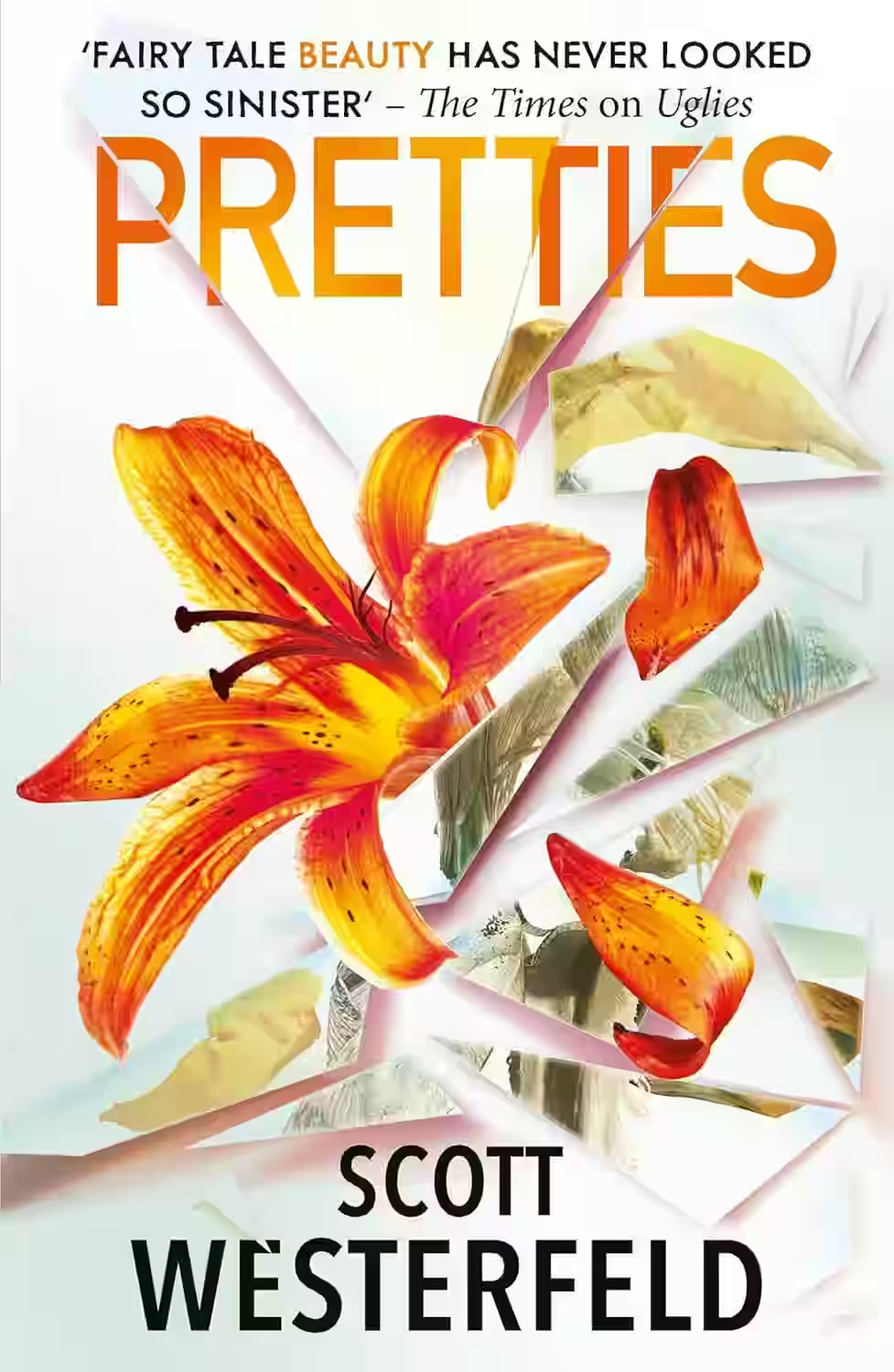
In 'Pretties,' the second installment of Scott Westerfeld's 'Uglies' series, readers are transported back into a world where everyone is obsessed with physical perfection. The story follows Tally Youngblood, who has undergone the transformation into a 'Pretty,' reveling in her new life filled with beautiful people and endless parties. However, Tally's carefree existence is threatened as she receives a chilling reminder of her past, pushing her to question the superficial perfection she's embraced. Themes of identity, choice, and the cost of beauty are explored against the backdrop of a society where conformity is prized. Westerfeld effectively balances thrilling action with thought-provoking social commentary, making this a compelling read for young adults and retaining the momentum from its predecessor. 'Pretties' challenges readers to consider the true definition of beauty and the sacrifices made for acceptance, all while keeping them hooked with its fast-paced plot and evolving characters.
About Uglies Series
The Uglies series by Scott Westerfeld is a thought-provoking YA dystopian saga set in a future society where everyone undergoes cosmetic surgery at sixteen to become a “Pretty.” The story follows Tally Youngblood, a rebellious teen who questions the system after meeting a girl who wants to remain “Ugly.” Beginning with Uglies, the series continues through Pretties, Specials, and Extras, exploring themes of beauty, conformity, rebellion, and identity. As Tally uncovers the dark truths behind the surgeries and the society’s control, she becomes a key figure in a revolution. The series blends action, science fiction, and social commentary in a gripping narrative.
About Scott Westerfeld
Scott Westerfeld, born on May 5, 1963, in Dallas, Texas, is a celebrated American author renowned for his contributions to young adult science fiction and dystopian literature. Graduating from Vassar College, Westerfeld's career spans various creative disciplines, yet he is best known for books that blend imaginative worlds with thought-provoking themes. His acclaimed 'Uglies' series, which explores societal standards and the pursuit of ideal beauty, remains a seminal work in the genre, influencing countless readers and spawning discussions on conformity and individuality. Westerfeld’s diverse portfolio also includes the 'Leviathan' trilogy, a riveting steampunk series that reimagines World War I. His ability to weave complex narratives has cemented his position as a pivotal figure in modern YA literature, inspiring a new generation of readers and writers alike.
Other Books by Scott Westerfeld
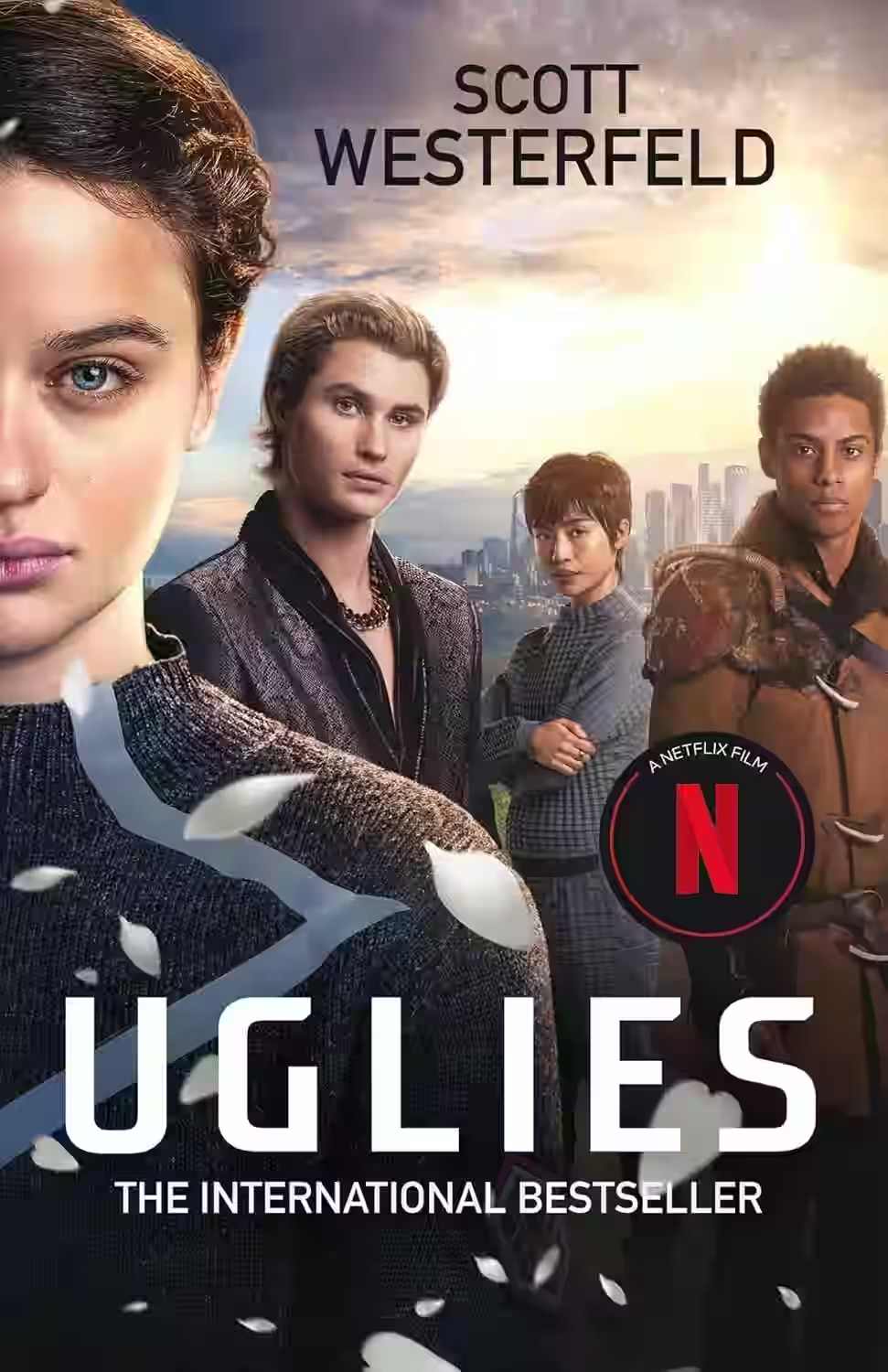
Uglies
Series: Uglies (#1)
In Scott Westerfeld's dystopian novel 'Uglies', readers are transported to a future world where physical beauty is mandated by society. At the age of sixteen, citizens undergo compulsory cosmetic surgery to transform from 'Uglies' to 'Pretties'. The story follows Tally Youngblood, who is on the brink of her transformation, but her world is turned upside down when she meets a rebellious friend, Shay, who questions the societal norms. Themes of identity, conformity, and the nature of beauty are skillfully explored as Tally embarks on a journey that challenges her understanding of reality. Westerfeld's book offers sharp social commentary, action-packed sequences, and believable character development, making it an engaging read that probes thought-provoking issues pertinent to both adolescents and adults. 'Uglies' evokes reflection on the pressure for aesthetic perfection and the loss of individuality, resonating deeply with its readers and sparking conversations about modern beauty standards.
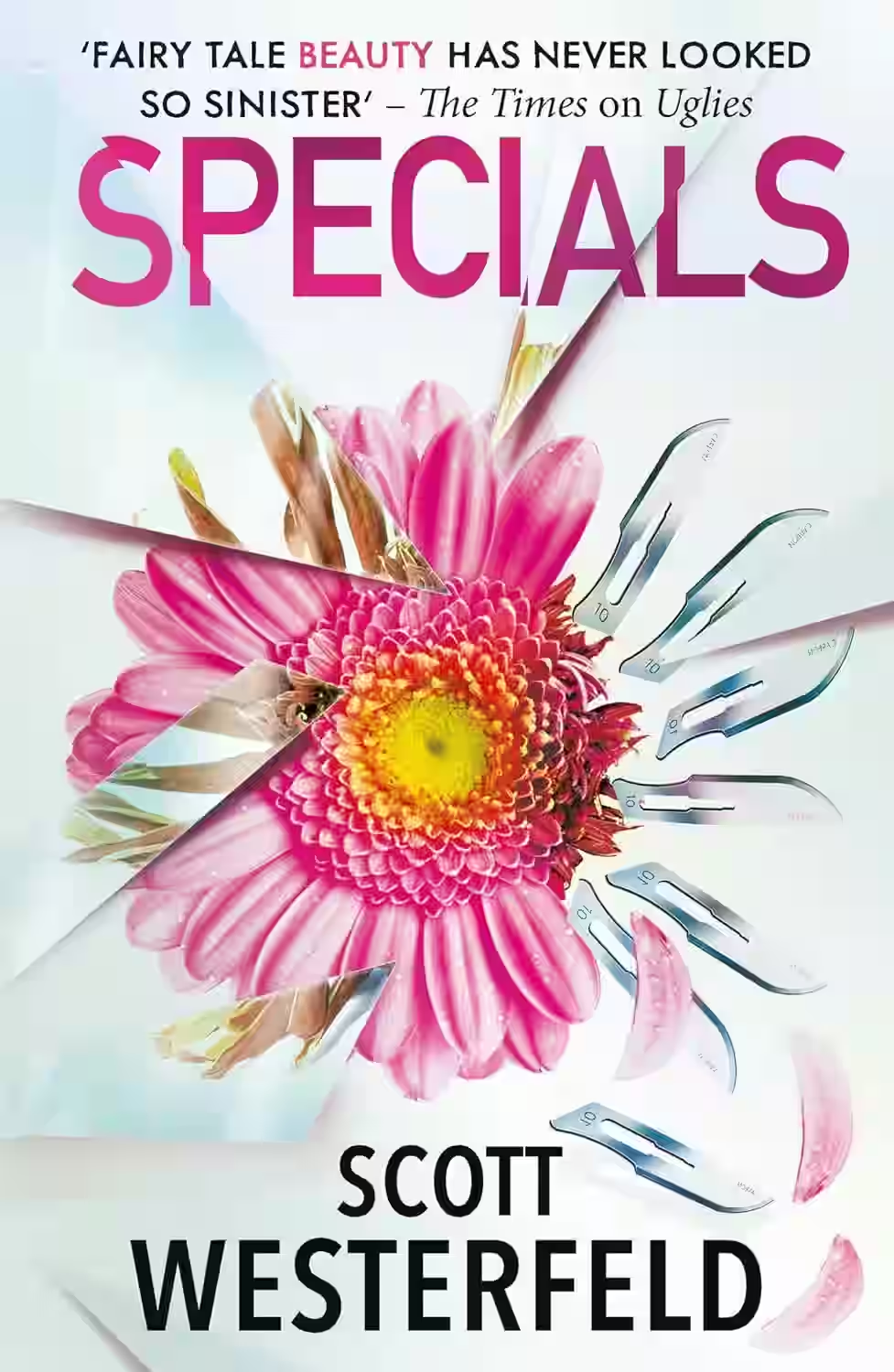
Specials
Series: Uglies (#3)
In 'Specials,' the third installment of Scott Westerfeld's captivating Uglies series, readers are thrust into a dystopian world where physical perfection and societal control are at the forefront. The protagonist, Tally Youngblood, now transformed into a 'Special' with enhanced abilities, grapples with her new identity and the moral implications of her role in maintaining government order. Themes of identity, freedom, and rebellion are intricately explored as Tally becomes increasingly conscious of the ethical dilemmas inherent in her society's structure. Westerfeld masterfully crafts a suspenseful narrative filled with action and introspection, compelling readers to ponder the cost of societal conformity and the essence of true individuality.

Extras
Series: Uglies (#4)
Scott Westerfeld's 'Extras' is a compelling continuation of his acclaimed Uglies series, set in a future where fame and appearances dominate society's hierarchy. This standalone novel introduces Aya Fuse, a 15-year-old who lives in a world where social standing is determined by one's popularity and media buzz. As she navigates this fame-driven environment, Aya stumbles upon a secret that could shake the foundations of her superficial society. Tackling themes of identity, societal pressure, and the power of media, Westerfeld crafts a thrilling narrative that simultaneously critiques celebrity culture and explores the human desire for recognition. 'Extras' is a thought-provoking adventure that will resonate with young adult readers interested in futuristic worlds and social dynamics.
Similar Books
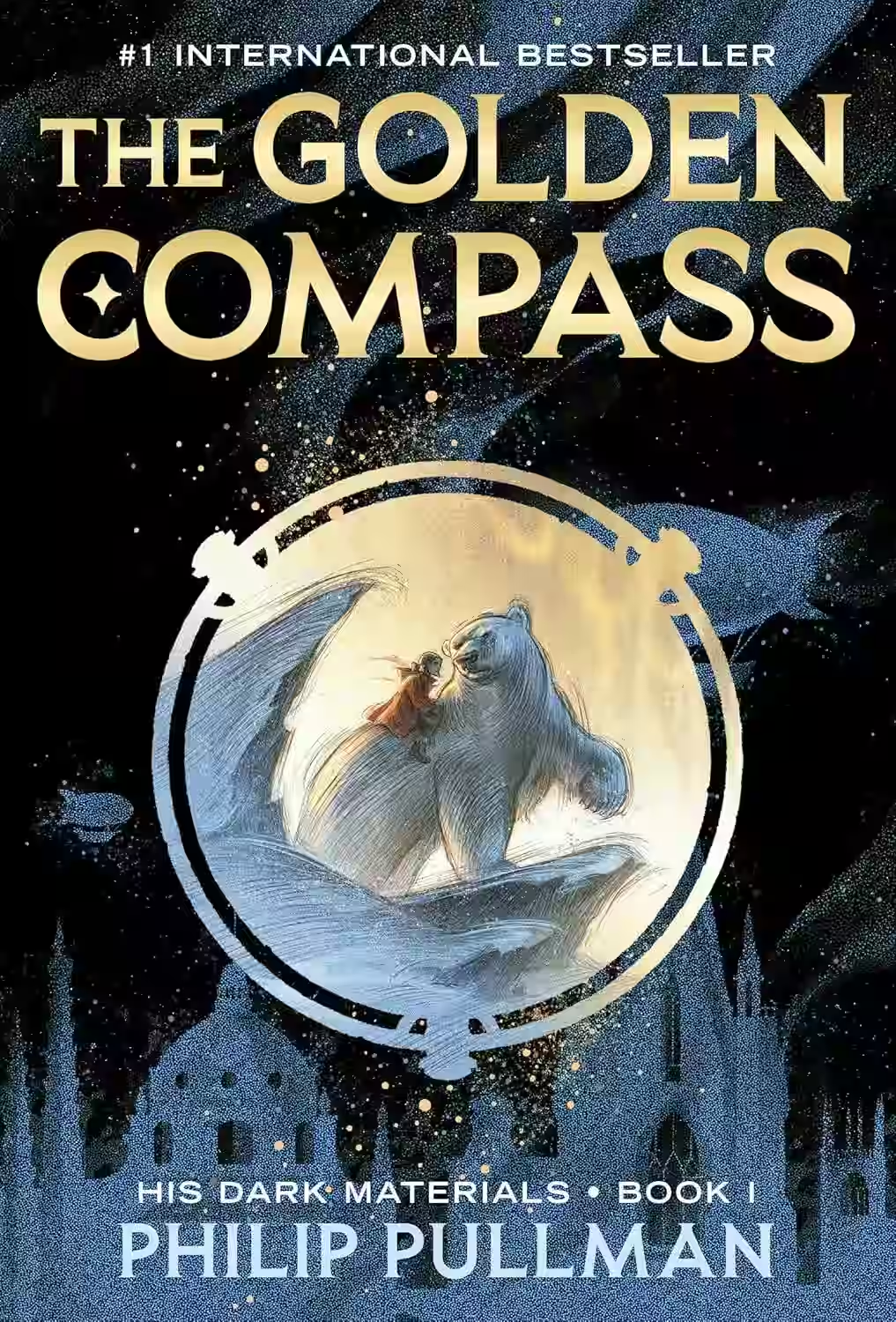
His Dark Materials: The Golden Compass
Series: His Dark Materials (#1)
In Philip Pullman's 'His Dark Materials: The Golden Compass,' readers are taken on a thrilling journey through a richly imagined world where individuals have daemons, animals that are manifestations of their souls. The story follows young Lyra Belacqua as she sets out to rescue kidnapped children and unravel a complex conspiracy. As Lyra uncovers dark secrets about authority, autonomy, and the nature of consciousness, readers are drawn into a thought-provoking exploration of free will and destiny. With its blend of adventure, philosophy, and fantasy, 'The Golden Compass' captivates audiences of all ages and leaves them eagerly anticipating the next installment.

Mockingjay
Series: The Hunger Games (#3)
In 'Mockingjay' by Suzan Collins, the epic conclusion to the Hunger Games trilogy, Katniss Everdeen finds herself at the center of a rebellion against the Capitol. As she grapples with her role as the symbol of the revolution, she must navigate a world of deceit, manipulation, and sacrifice. The story delves into themes of power, propaganda, and the personal cost of war, creating a gripping narrative full of twists and turns. Collins masterfully weaves together action-packed sequences with moments of introspection, showcasing the complexity of Katniss's character. 'Mockingjay' is a poignant and thought-provoking finale that will leave readers reflecting on its themes long after the last page.
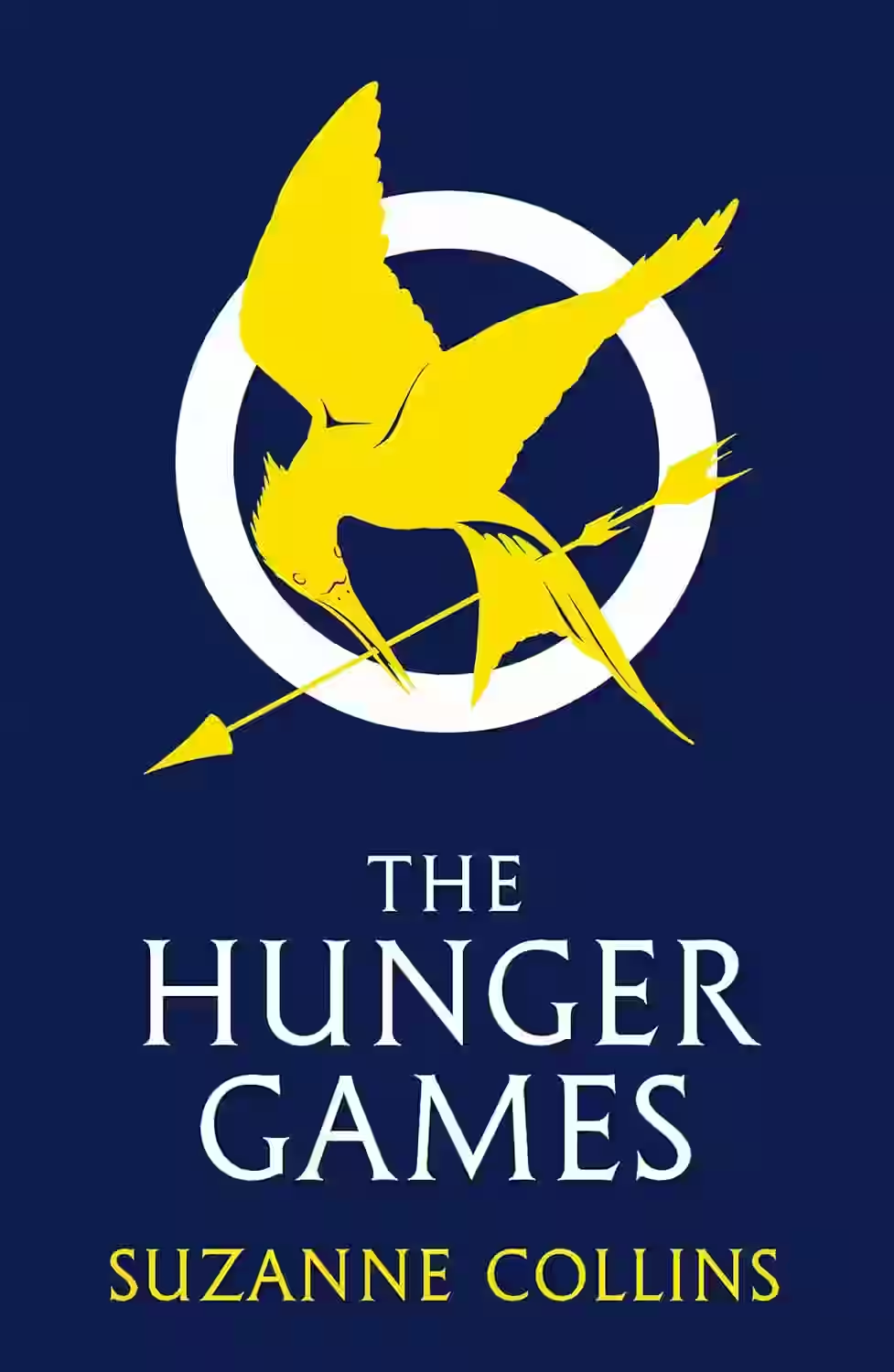
The Hunger Games
Series: The Hunger Games (#1)
Suzanne Collins' 'The Hunger Games' is a gripping dystopian novel set in a post-apocalyptic world where children fight to the death in a televised spectacle. The story follows Katniss Everdeen, a brave and resourceful young woman who volunteers to take her sister's place in the deadly Hunger Games. Through Katniss's eyes, we explore themes of survival, sacrifice, and rebellion against an oppressive government. Collins weaves a tale of action, suspense, and moral complexity that captivates readers from start to finish. 'The Hunger Games' is a thought-provoking commentary on power, media manipulation, and the resilience of the human spirit.

Allegiant
Series: Divergent (#3)
In 'Allegiant,' Veronica Roth concludes her dystopian Divergent trilogy, diving into the political and social upheaval faced by Tris Prior and Tobias 'Four' Eaton. As secrets about their society come to light, Tris and Tobias grapple with complex themes of loyalty, trust, and identity. The narrative explores the consequences of power struggles and the resilience required to face uncertain futures. The dual narrative provides insight into both protagonists’ innermost thoughts and motivations, enhancing the emotional depth of the story. Despite mixed reactions to its ending, 'Allegiant' evokes important discussions on sacrifice and the costs of rebellion.